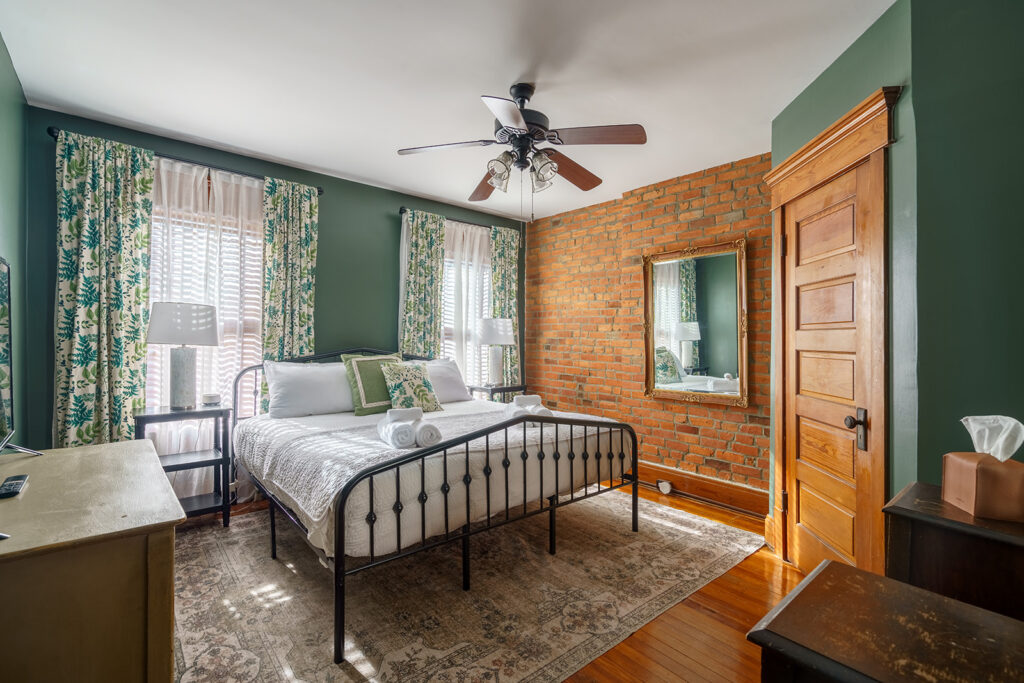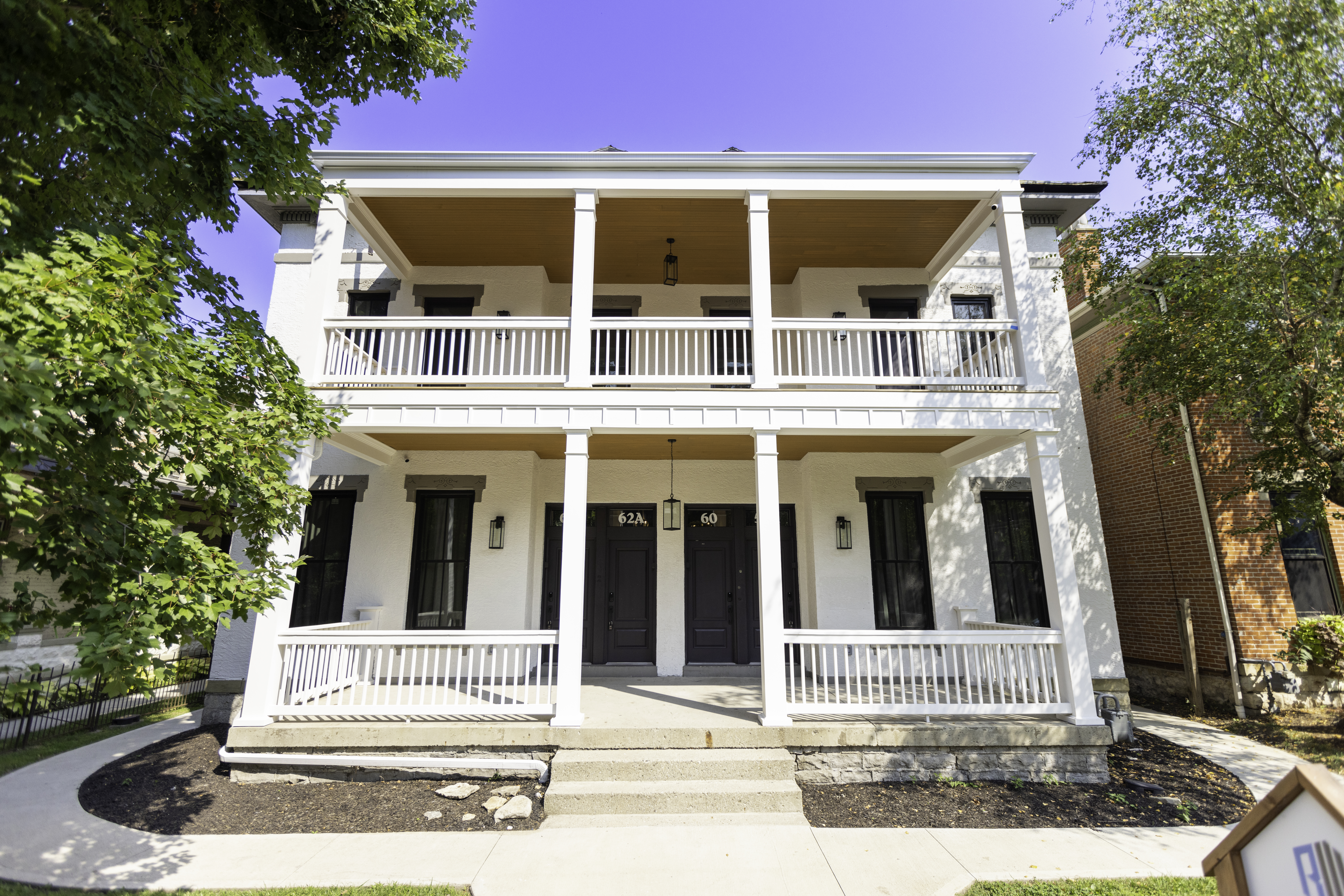
Are you prepared for Airbnb disasters?
You probably think the biggest risk to your rental property is a wild paying guest. It’s an easy assumption to make. But the truth is, the most expensive disasters often happen when no one is there at all. Your standard short-term rental insurance policy has a secret that could cost you thousands; it is a tiny detail hidden in the fine print.
Most insurance policies stop covering major risks after your property sits vacant for just 30 days. You would likely never know this until you tried to file a claim. You’ll learn exactly what this rule is, why it matters for your vacation rentals, and how to make sure your investment is actually protected.
Proper insurance is more than just a piece of paper; it’s your business’s safety net. Having the right short-term rental insurance cover is fundamental for any rental owner.
We’ve rounded up all of our Airbnb Hosting Must-Haves right here in our Amazon Store. Click here to grab everything you need to curate your property and start earning 5-star reviews.
- What Really Threatens Your Vacation Rental?
- The Hidden Danger: Understanding the Vacancy Clause
- How a 30-Day Vacancy Happens (Faster Than You Think)
- Your Guide to Smarter Short-Term Rental Insurance
- Proactive Steps to Protect Your Empty Property
- Don’t Let Misconceptions Cost You Thousands
- Conclusion
What Really Threatens Your Vacation Rental?
It’s not your guests. Surprising, right? We’ve welcomed tens of thousands of guests over the years. We can tell you that the scariest phone call is not about a broken lamp; it is about a problem that went unnoticed for weeks in an empty house.
Insurance companies know this well. Their data shows that an occupied property means problems get found and fixed quickly. A vacant property, however, lets small issues turn into catastrophes. That’s where the real risk lives, and that’s what they worry about most.
A Tale of Two Pipe Bursts
Let’s imagine a water pipe bursts in your vacation rental on day 10 of a vacancy. If someone is checking the property, they would spot it fast. The repair might cost you around $3,000 for the property damage.
Now, let’s say that same pipe bursts and no one notices for 40 days. The water has been running that whole time. That $3,000 fix has now ballooned into a $30,000 nightmare.
You’re not just replacing a pipe; you’re dealing with destroyed floors, ruined drywall, and a serious mold problem that most policies won’t even cover. This scenario highlights why prompt detection is vital for short-term rental owners.
Vacancy Makes You a Target
It’s not just about water damage. An empty home is a magnet for trouble. Think about a vandal who breaks a window after your property has been empty for six weeks; with a 30-day vacancy clause, you would be on your own for that repair bill.
Interestingly, some things like storm damage might still be covered by your insurance coverage. Insurers figure a storm happens whether someone is home or not. But problems like fire, vandalism, and water damage are directly tied to how long a house sits empty.
Because of this, claims for these events are often denied if they happen after that 30-day window. Even the risk of a guest steals something pales in comparison to unchecked damage. The biggest financial risk isn’t the party; it’s the silence.
Insurance coverage protects your property, but you also need to know how your rental performs in real-life scenarios. That’s why running a test stay is so important. Our post on Why You Need an Airbnb Test Stay explains how a test guest can uncover hidden issues—from small maintenance problems to guest experience gaps—so you can fix them before they turn into expensive claims or bad reviews. It’s a simple strategy to safeguard your property and make sure your insurance coverage actually works when you need it most.
The Hidden Danger: Understanding the Vacancy Clause
So what is this rule that can cause so much trouble for rental owners? It’s often called a vacancy clause, and it’s a standard part of almost every homeowners insurance and landlord insurance policy. You’ll find it in most short-term rental insurance plans, too.
The clause states that after a property has been unoccupied for a set period, usually 30 consecutive days, certain types of insurance cover are reduced or excluded entirely. This is because an empty property is more susceptible to undetected damage and theft. According to the Insurance Information Institute, theft and vandalism are significantly higher risks in vacant homes.
Your turnover team isn’t stopping by. You have no reason to swing by yourself. Before you know it, a month has flown by, and your most valuable asset is sitting unprotected. This little clause is a big deal for anyone managing short-term rentals.
How a 30-Day Vacancy Happens (Faster Than You Think)
You might be thinking, my property is never empty for a whole month. You’d be surprised how quickly the days add up. These are just a few common scenarios where Airbnb hosts and other rental owners get caught off guard.
- The Slow Season Creeps In. Almost every market has a slower time of year. Those gaps between bookings can stretch longer than you expect, easily pushing past the 30-day mark without you even realizing it. This is a common issue for a vacation rental owner in seasonal destinations.
- Pivoting Your Strategy. Maybe you’re testing out a mid-term rental strategy or even rental arbitrage. Finding the right tenant can take time. That gap between your last short-term paying guest and your new renter can leave you vulnerable.
- Selling Your Property. If you decide to sell your rental, it can sit on the market for weeks, sometimes months. All that time, your investment is exposed if you haven’t talked to your insurance provider.
- Renovations Take Longer. You block off two weeks for a kitchen refresh. But supply delays and contractor schedules turn two weeks into five. This is a very common way hosts find themselves with an extended vacancy.
- A Big Cancellation. A paying guest who booked a month-long stay cancels at the last minute. It’s now tough to fill that hole in your calendar, and the 30-day clock starts ticking immediately.
- Personal Emergencies. A family matter could require you to block off your calendar and travel unexpectedly. During this time, the property sits empty, and managing it from afar becomes difficult, letting the vacancy period grow.
Any one of these situations could happen to any host. This isn’t about being a bad planner. It’s about understanding that vacancies happen and you need a plan for when they do, especially to maintain your property coverage.

Your Guide to Smarter Short-Term Rental Insurance
This all sounds scary, but the good news is that this problem is easy to fix. It all starts with having the right insurance partner and asking the right questions. Your standard homeowners insurance policy is not designed for business activity; listing your home on a platform like Airbnb or Vrbo is a business.
Trying to file a claim on a standard homeowners policy will almost certainly result in a denial, as these policies are not written to cover short-term rental activities. A current homeowners policy may not provide coverage for commercial ventures. It is crucial to have the right rental insurance cover from the start.
You need a policy written specifically for short-term rental activity. Likewise, you cannot rely only on the host guarantee programs offered by booking platforms. These are not insurance policies, and they come with many limitations, so they should never be your primary line of defense.
Finding the Right Insurance Companies
The best move is to work with an insurance company that focuses on real estate investors. These specialists speak your language. They understand the difference between a paying guest and a long-term tenant, a critical distinction for your liability coverage.
Their policies are built to cover the specific risks you face, like guest-caused damage, liability if a guest gets hurt during their stay, and lost rental income after a covered event. A good short-term rental policy from reputable rental insurance companies will give you peace of mind. A licensed insurance producer can help you compare different insurance products and find what is right for you.
Comparing Your Insurance Options
It can be confusing to know what type of insurance you need. For a vacation rental owner, a standard policy just won’t do. Here is a breakdown of the most common types of insurance for rental properties.
| Insurance Type | Who It’s For | What It Typically Covers | Key Limitation for STRs |
|---|---|---|---|
| Homeowners Insurance | Owner-occupants | The structure, personal belongings, and personal liability. | Excludes all commercial activity, including short-term rentals. |
| Landlord Insurance | Owners of long-term rental properties (30+ day leases) | The structure, landlord’s belongings, and liability related to tenants. | Does not cover short-term guest stays or high turnover risks. |
| Short-Term Rental Insurance | Owners of vacation rentals, Airbnb hosts, etc. | Property damage, liability coverage for guests, and loss of rental income. | Must be a specialized policy; check for a vacancy clause. |
This table illustrates why a specific rental policy for short-term rentals is non-negotiable. Major providers like American Family and other specialists offer policies designed for the term vacation rental market. Don’t assume your homeowners policy will cover short-term rentals; it almost certainly won’t.
Proactive Steps to Protect Your Empty Property
You can’t just hope for the best. You need a system to manage vacancies, just like you have a system for cleaning and pricing. Protecting your asset when it’s empty is one of the most important jobs you have as a rental owner.
Notify Your Agent and Add an Endorsement
The simplest step is communication. If you know your property will be vacant for more than 30 days, call your agent. You can usually add a vacancy endorsement or a vacancy rider to your policy cover.
This is an inexpensive addition that extends your coverage, keeping your protection in place. It’s a simple phone call that can save you a fortune. This is an important part of managing your term vacation rental business effectively.
Schedule Regular Property Checks
You need eyes on your property, especially in high-density areas like San Francisco where an issue can affect neighbors quickly. This doesn’t have to be complicated. Have a trusted neighbor, your cleaner, or a handyman walk through the property every week or two.
A property manager can also handle this for you. They should look for obvious signs of trouble.
- Leaks under sinks or around toilets.
- Signs of pests.
- Evidence of a break-in or vandalism.
- Making sure the heat or AC is working properly to prevent frozen pipes.
- Checking for mail pile-ups that signal vacancy to thieves.
This is all about early detection. Finding a small leak prevents it from becoming a giant disaster that ruins your personal property and the structure. Creating a simple property inspection checklist can help make sure nothing gets missed during these checks.
Automate Your Wellness Checks
Don’t rely on your own memory to handle this. As a host, you’re wearing dozens of different hats. It is so easy for time to slip by.
Use an operations software or even just a recurring calendar reminder. We use software that automatically schedules a wellness check for any property that has been vacant for two weeks. An alert pops up, and we make sure someone gets over there.
Smart home technology can also be a huge help. Water leak sensors can send an alert to your phone the moment they detect moisture. Smart thermostats allow you to monitor and adjust the temperature remotely, which is crucial in colder climates. These systems provide great property coverage protect for your investment.

Don’t Let Misconceptions Cost You Thousands
Many hosts are lulled into a false sense of security. They think because the policy says short-term rental they are completely covered for everything. But those fine-print details, like the vacancy clause, apply just the same.
Let’s be honest. We didn’t even know about this specific rule until we were interviewing an insurance company for our business. It was a huge aha moment for us. It showed us just how deep you have to dig to truly protect your assets.
This is why you need to review your coverage every single year with a licensed insurance agent. Your property changes; maybe you added a hot tub or a fire pit. Maybe your bookings have doubled, changing your income projections. An annual review with your agent makes sure your insurance coverage keeps up with your success.
Don’t just set it and forget it. Be an active participant in protecting your business. Proper insurance from a dedicated insurance provider is a cornerstone of a successful rental business, not an afterthought.
Protecting your property doesn’t have to be overwhelming. Our free Essentials Checklist is a step-by-step guide that helps you prepare your short-term rental, keep it fully stocked, and maintain a smooth guest experience. From safety checks to must-have items for every stay, this checklist ensures you minimize risks, reduce complaints, and maximize your income—all while keeping your insurance valid and your property secure.
Conclusion
The idea that an empty property is your biggest liability can feel backward. But that 30-day vacancy rule is one of those details that can wipe you out if you ignore it. The good news is that you don’t have to be caught by surprise. You now have the knowledge to protect yourself and your investment.
Take some time this week to pull out your current short-term rental insurance policy. Call your agent and ask them directly about vacancy coverage and how your plan works. If you don’t have the right short-term rental insurance, or if you don’t like the answers you get, it’s time to find a partner who specializes in protecting hosts like you.
Securing comprehensive rental insurance cover is one of the smartest business decisions you can make. It protects your property, your income, and your future as a successful host. Don’t wait for a disaster to discover a gap in your policy.
Keep Learning with Us
Your hosting journey doesn’t stop here! 🎉 Whether you’re looking for the tools we personally use to run our rentals or want to dive deeper into strategies that make hosting more profitable and enjoyable, we’ve got you covered. Head over to Thanks For Visiting to learn more and explore our favorite trusted tools, free resources, and next steps for growing your hosting business.
Happy Hosting!



show comments
HIDE comments